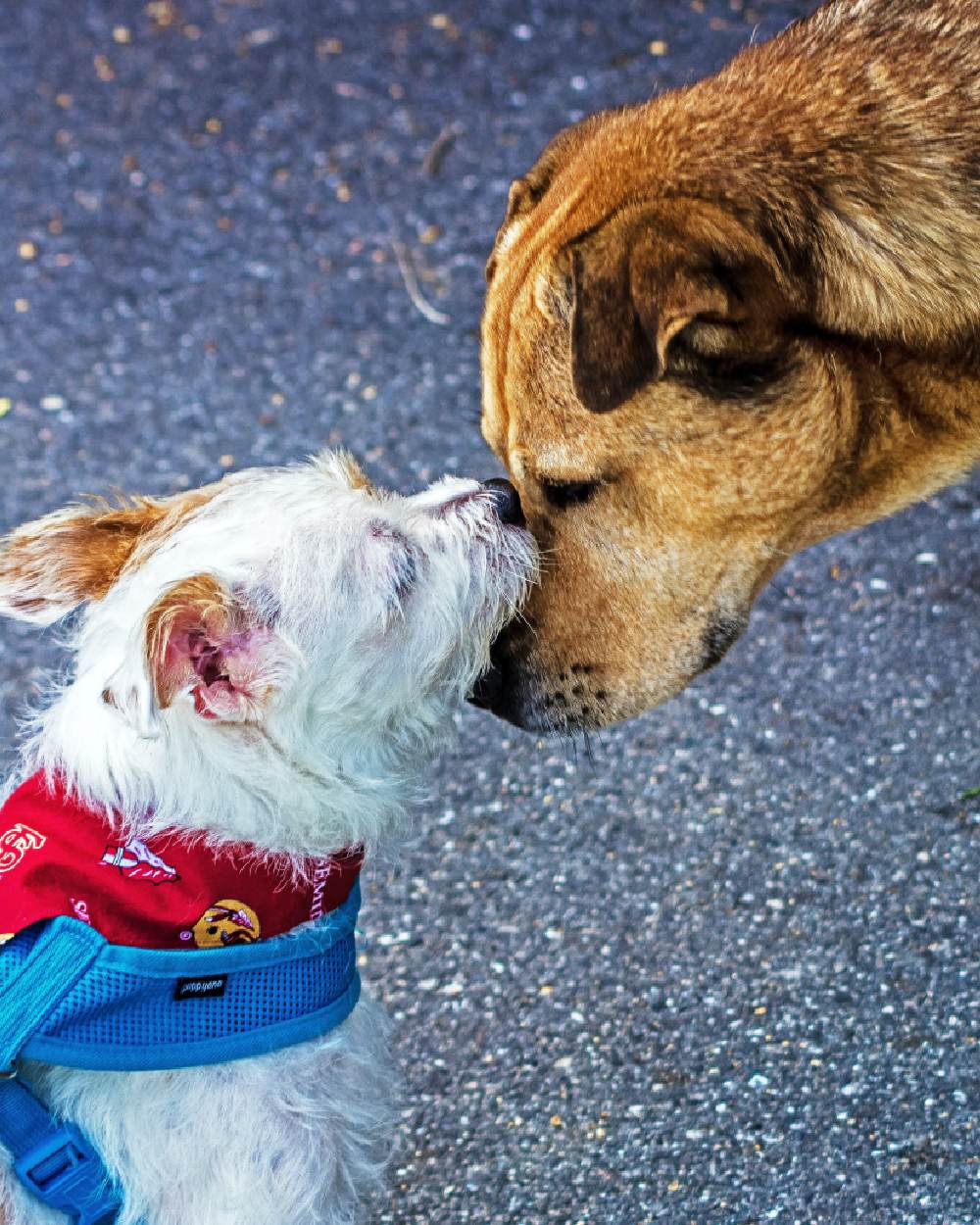7th Annual Holiday Toy & Book Event Help make the holidays brighter this year!
Inflation Is Hitting Pet Parents Hard, But They Are Not Alone
Matthew Russell
Inflation is a challenging economic reality that impacts various aspects of our lives, including the cost of caring for our beloved pets. As the prices of essential goods and services rise, pet parents often find themselves facing financial hardships that can deeply affect their ability to provide the necessary care for their furry companions. Unfortunately, in some cases, these financial pressures become overwhelming, leading to heart-wrenching decisions, such as surrendering a pet to an animal rescue organization.
Rising Costs: The Inflation Effect on Pet Care
Pet ownership is a deeply rewarding experience that brings joy, companionship, and unconditional love into our lives. However, it also comes with financial responsibilities that can strain household budgets, especially when inflation drives up the costs of pet care essentials.
 Photo: Pexels
Photo: PexelsRising costs of essential pet care items put financial strain on pet parents.
1. Veterinary Care: A Balancing Act
One of the most significant expenses for pet parents is veterinary care, One Health Organization reports. Routine check-ups, vaccinations, and preventive treatments are essential to keep pets healthy and prevent costly illnesses. Unfortunately, as inflation impacts the cost of medical supplies and services, veterinary bills can become increasingly burdensome.
Moreover, unexpected medical emergencies can catch pet parents off guard, leading to hefty bills that are difficult to manage, DVM 360 reports. The need to balance the well-being of their pets with financial constraints places pet parents in a challenging position, often leading to difficult decisions regarding their pet's healthcare.
 Photo: Pexels
Photo: PexelsVeterinary care becomes increasingly expensive amidst inflation, impacting pet health.
2. Food and Nutrition
A nutritious diet is fundamental to the overall health and well-being of pets. As the cost of pet food rises due to inflation, pet parents may find themselves struggling to afford premium-quality pet food for their furry companions. Many may resort to budget-friendly alternatives, but compromising on nutrition can have long-term consequences on a pet's health.
Inflation-driven financial constraints can also lead to food insecurity for both pets and their owners, as families may face difficult choices between providing for their human family members and meeting the nutritional needs of their pets.
 Photo: Pexels
Photo: PexelsInflation-driven pet food price hikes challenge nutrition budgets.
3. Housing and Pet-Friendly Rentals
For many pet parents, finding suitable pet-friendly housing can be a challenge even before inflation comes into play. However, inflation can exacerbate this issue, as rental prices soar and landlords may impose stricter restrictions on pet ownership. This situation may force pet parents to make difficult decisions, including giving up their pets in an attempt to secure housing.
The Emotional Toll of Surrendering a Beloved Pet
For pet parents facing the pressures of inflation and financial hardships, the prospect of surrendering a beloved pet can be heart-wrenching and emotionally devastating. Pets become cherished family members, and the bond between them and their caregivers is often unbreakable. The decision to surrender a pet is not taken lightly, and it is often seen as a last resort in desperate situations.
 Photo: Pexels
Photo: PexelsBalancing pet care expenses with household finances becomes difficult. amidst inflation
1. Grief and Guilt: The Emotional Turmoil
Surrendering a pet due to financial difficulties can lead to profound grief and overwhelming guilt for pet parents, ABC NEWS reports. The sense of failure to provide for a beloved companion can be emotionally crippling, leading to feelings of shame and self-blame. Pet parents may question their abilities as caregivers and wrestle with the fear of their pet not finding a loving home.
2. Impact on Pets: Stress and Anxiety
Pets are highly attuned to their human family's emotions, and the stress and anxiety experienced by pet parents can affect the well-being of their furry friends, NPR reports. The sudden change in environment, separation from their caregivers, and the uncertainty of their future can leave pets feeling scared, confused, and abandoned. For some pets, surrendering can result in behavioral issues and other health problems.
 Photo: Pexels
Photo: PexelsUnexpected medical emergencies lead to hefty vet bills.
3. Overwhelmed Animal Rescue Organizations
The consequences of inflation on pet ownership extend beyond individual households and affect animal rescue organizations as well. Surrendered pets place an additional burden on already overwhelmed shelters and rescue groups. The influx of surrendered animals can strain resources and limit the organization's ability to provide optimal care for each animal.
Breaking the Cycle: Support for Pet Parents and Animal Rescue
Addressing the challenges of inflation on pet ownership requires a multi-faceted approach that encompasses both individual support and broader community initiatives.
 Photo: Pexels
Photo: PexelsSurrendering a beloved pet due to housing costs causes emotional turmoil.
1. Financial Assistance Programs
As Best Friends Society points out, there are financial assistance programs that can provide vital support to pet parents facing economic challenges. These programs can offer subsidized veterinary care, pet food, and even temporary housing solutions for pets. Collaboration between governmental agencies, animal welfare organizations, and veterinary clinics is essential to make these programs accessible and effective.
2. Education and Awareness
Raising awareness about the impact of inflation on pet ownership can help reduce the stigma around financial difficulties faced by pet parents. Educating the public about the available resources and the importance of responsible pet ownership can empower individuals to seek help when needed, reducing the number of pets surrendered due to financial hardships.
 Photo: Pexels
Photo: PexelsPets suffer stress and anxiety when separated from their caregivers.
3. Promoting Pet Adoption and Foster Programs
Encouraging pet adoption and fostering can ease the strain on animal rescue organizations while providing loving homes for surrendered pets, One Green Planet reports. Community-driven initiatives can also work to create a network of foster families willing to provide temporary care for pets until permanent homes can be found.
4. Collaborative Efforts
Collaboration between animal rescue organizations, governmental agencies, and community members is vital to address the complexities of inflation's impact on pet ownership. By working together, we can develop comprehensive solutions that protect both pets and their caregivers, ensuring that no pet parent is forced to surrender their beloved companion due to financial hardships.
 Photo: Pexels
Photo: PexelsProviding optimal care for pets becomes challenging amidst inflation.
A Future of Hope
The pressures of inflation on pet parents are undeniable, but by coming together as a community, we can create a future of hope for both pets and their caregivers. Supporting pet parents facing financial difficulties and investing in the well-being of our furry friends will preserve the unbreakable bond between humans and animals, ensuring a brighter and more compassionate future for all.
Together, we can break the cycle of surrender and embrace a society where every pet has a loving home, regardless of the economic challenges faced by their caregivers. Let us build a world where the love for our pets knows no boundaries, and economic hardships do not dictate the fate of our cherished companions.

